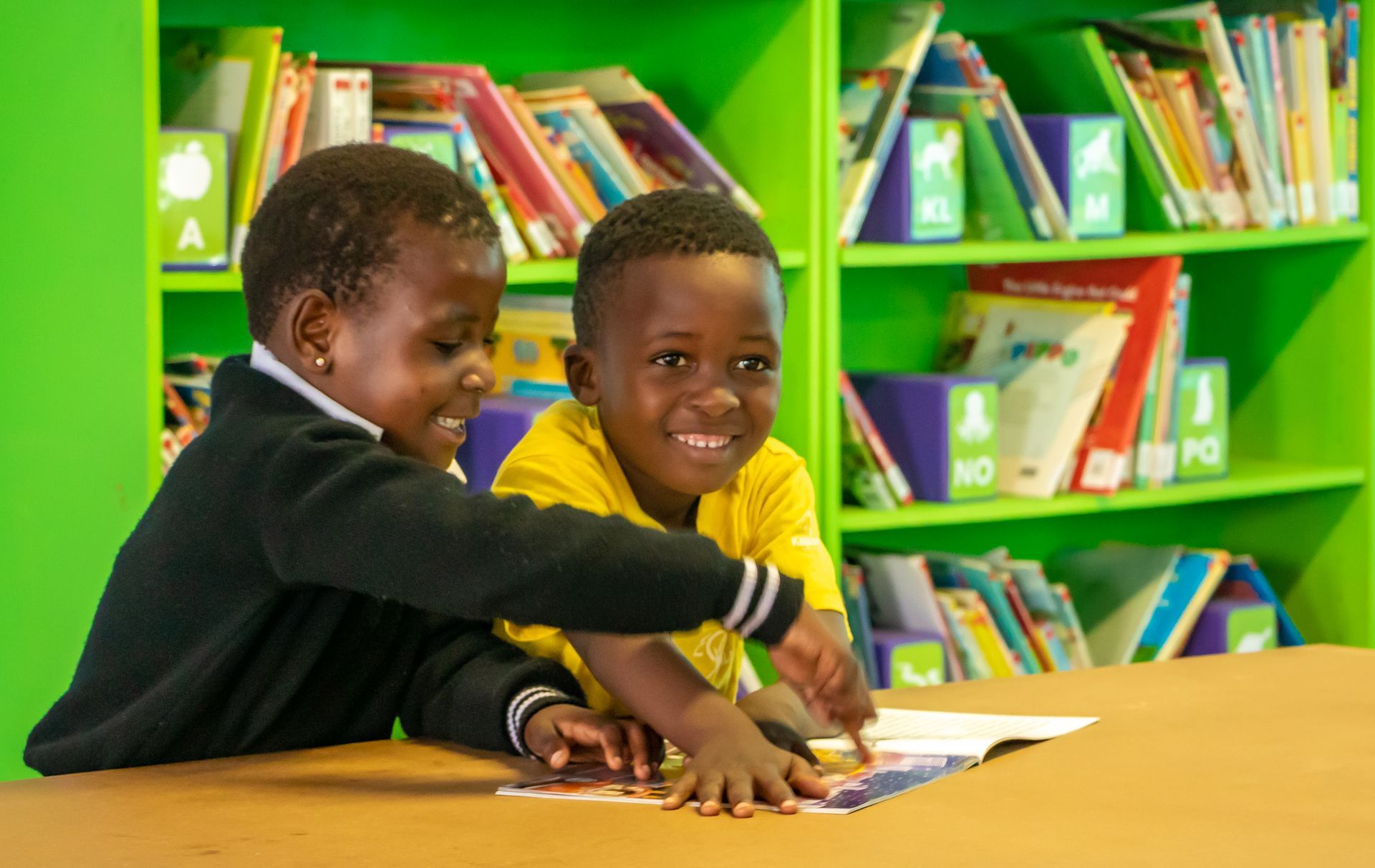
Employee of the month
March 12, 2025
Celebrating Lorraine Malatjie as our February Employee of the Month!
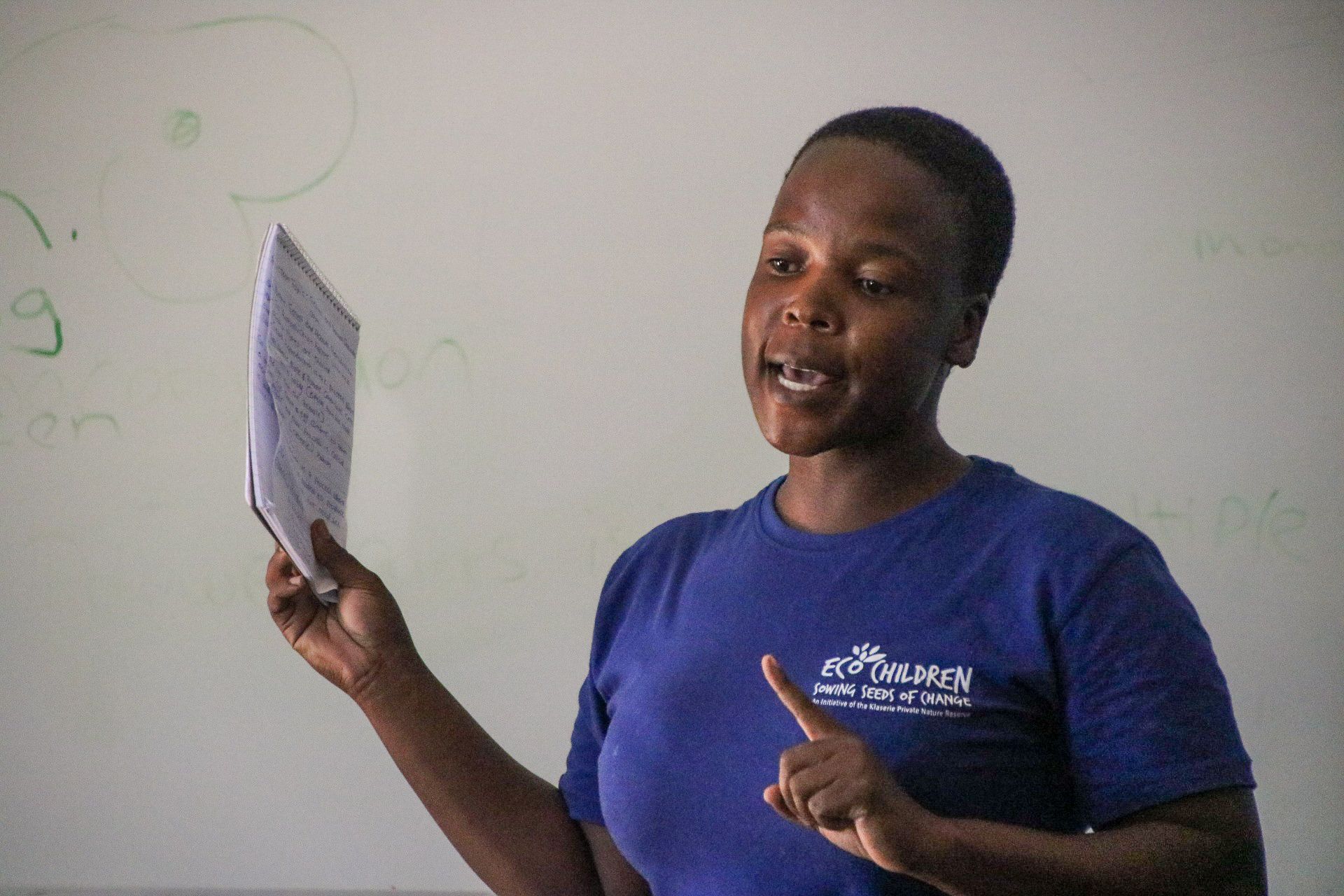
We're thrilled to announce Lorraine as our Employee of the Month for February! Her outstanding performance, steadfast commitment, and cheerful demeanor have truly shone, making her an invaluable member of the Eco Children team.
Currently serving as an Environmental Educator at Powerline Primary School, she engages with about 120 students every day, whether in the Eco Village or the classroom – she truly excels!
Her commitment to fostering young minds and instilling a passion for learning is evident. Lorraine's enthusiasm for environmental education shines through in every lesson she conducts, inspiring her students to care for the planet and embrace sustainable practices. Lorraine's innovative teaching methods and ability to engage her students have not only enhanced their learning experience but also fostered a genuine interest in environmental stewardship.
Her colleagues describe her as a team player who is always willing to lend a hand and share her wealth of knowledge. We are incredibly proud to have Lorraine as part of our team and grateful for her contributions to our mission.
Congratulations, Lorraine, on this well-deserved recognition! Keep up the fantastic work, and thank you for being such an inspiration to us all.
“Success blooms where passion and hard work meet.”
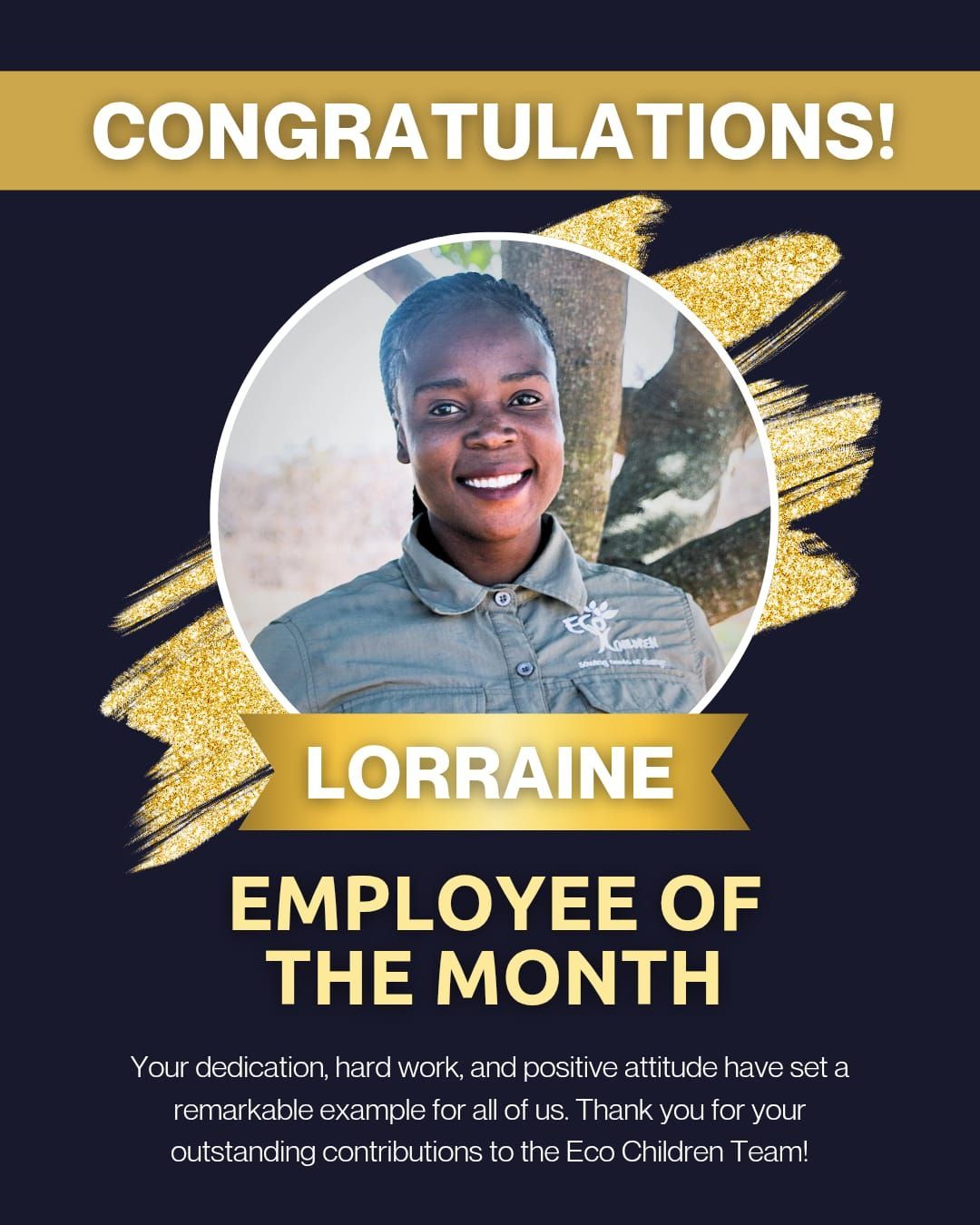
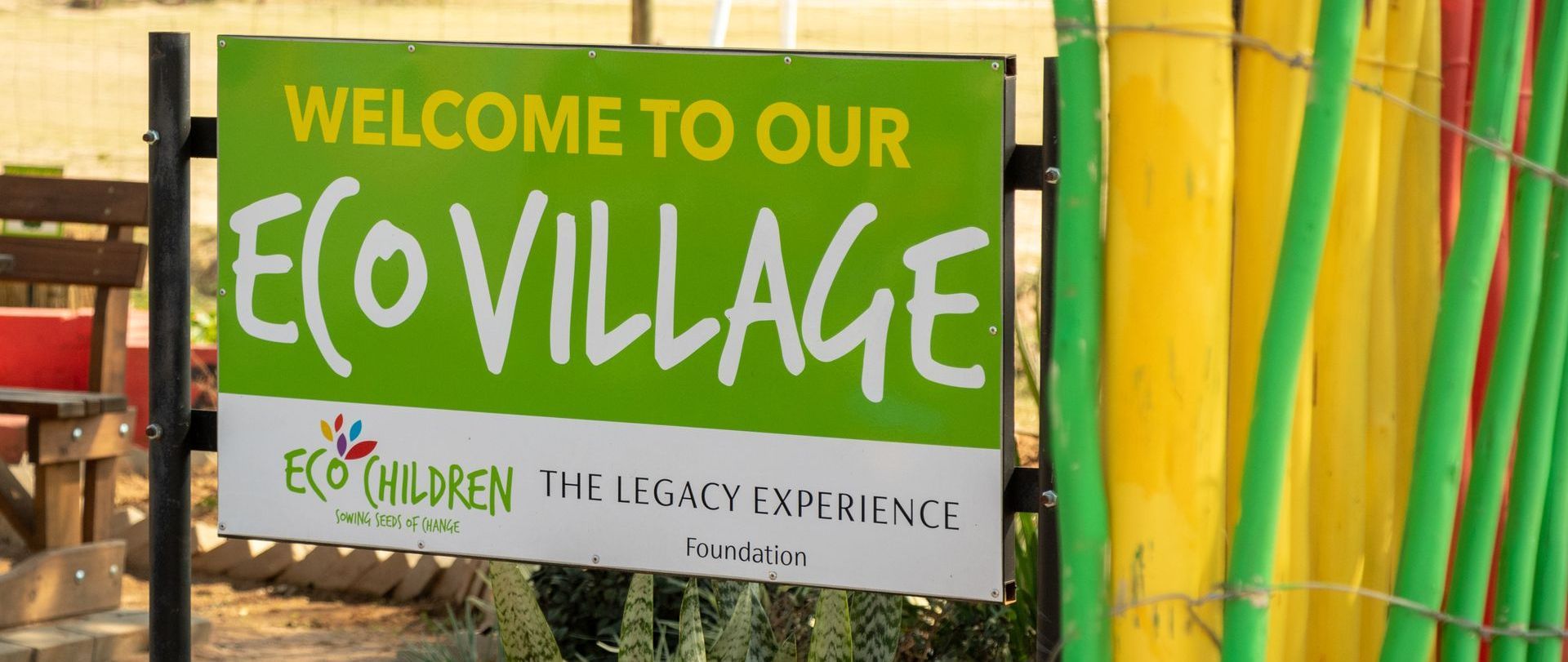
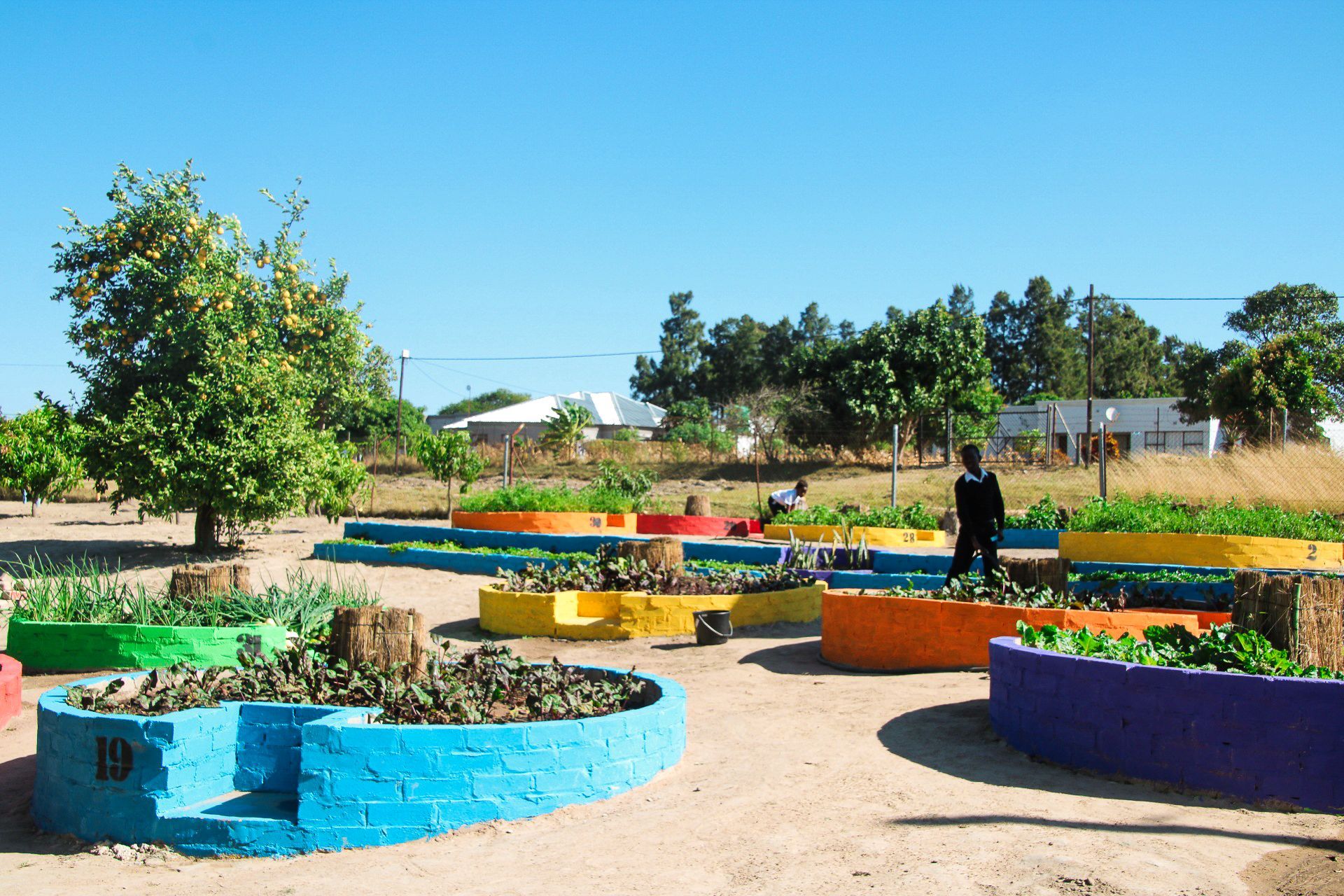
By Mandie Gericke
•
April 11, 2025
At Eco Children, we’ve always believed that education and environment go hand in hand. That belief comes to life in our school gardens — vibrant, living classrooms where children are not just learning to plant food, but growing confidence, knowledge, and a deep connection to the land. 🌱 Sowing the Seeds of Sustainability Each garden starts with a patch of soil and a whole lot of hope. Through our garden program, we partner with schools to establish productive vegetable gardens that are cared for by the learners themselves, alongside their teachers and community members. The goal? To promote food security, environmental education, and hands-on learning — all while supporting the nutritional needs of learners. From composting and water-wise gardening to understanding the life cycle of a plant, children don’t just read about these things — they live them. 🍅 More Than Meals: A Lesson in Life Yes, these gardens help supplement school feeding schemes with fresh, healthy produce like cabbage, carrots, and beets. But the true impact goes far beyond the plate. Learners gain: • Skills in agriculture and teamwork • Pride in nurturing something from seed to harvest • Respect for the environment and sustainable living • Knowledge, they take home, sharing what they learn with their families 👨🏾🌾 A Whole Community Grows The ripple effects are incredible. Parents become involved. Community members volunteer. And soon, the garden becomes a space where everyone learns and contributes. In some schools, surplus produce from the gardens is sold to support school needs or reinvested into expanding the project — a small but mighty example of community-led development. 🌍 Growing Hope, One Seed at a Time In a region where challenges like poverty, food insecurity, and climate change are very real, these gardens are a quiet revolution. They teach our children that change doesn’t always come from far away — sometimes, it starts with your hands in the dirt and a seed of an idea. So yes — we’re growing vegetables. But more importantly, we’re growing leaders, caretakers, and changemakers for tomorrow.
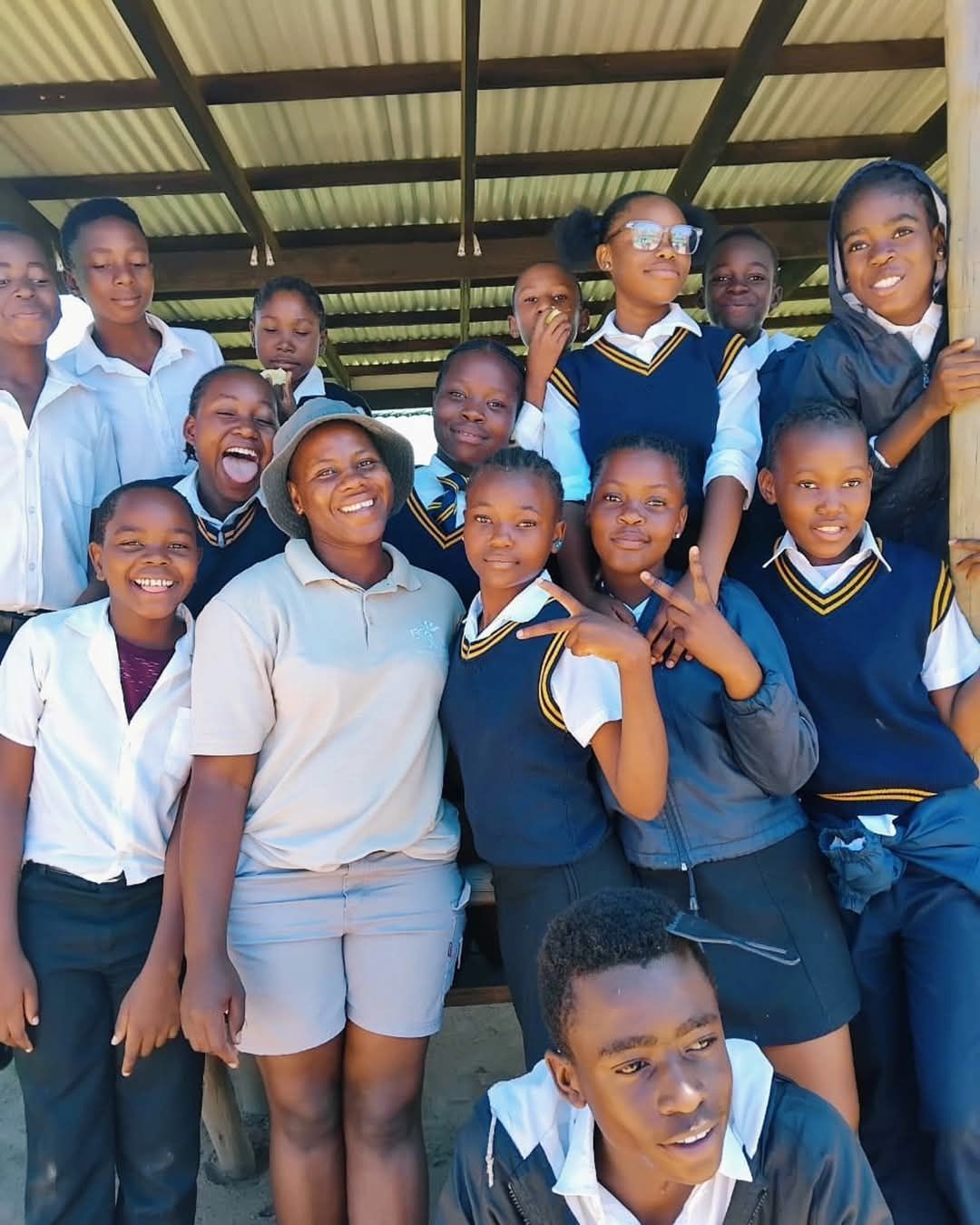
By Mandie Gericke
•
April 7, 2025
At Eco Children, we believe in recognizing the individuals who go the extra mile to uplift communities, inspire young minds, and protect our planet. This March, we are incredibly proud to shine the spotlight on Tsoseletso Chiloane, our Employee of the Month, whose unwavering dedication and passion embody everything we stand for. Tsoseletso joined the Eco Children family in early 2021, and since then, she has been a powerful force for change. Serving as both Environmental Educator and Librarian at Tshokolo Primary School, she brings creativity, enthusiasm, and purpose to everything she does. Whether she's leading engaging lessons on environmental conservation or sparking a love of reading in her students, Tsoseletso always goes above and beyond. Her innovative teaching methods and ability to connect with learners have not only made education fun but have also planted seeds of curiosity and care for the world around them. What sets Tsoseletso apart is her deep commitment to both education and the environment—a dual passion that makes a lasting impact. Her work empowers the next generation to think critically, dream boldly, and act responsibly. She reminds us that great teachers don’t just teach—they inspire, empower, and shape the future. Tsoseletso, your hard work, passion, and positive spirit do not go unnoticed. Thank you for making a difference every single day. We are truly lucky to have you as part of the Eco Children team!
MENU
GET IN TOUCH
Visit
4 Khayagelo Business Suites, R527, Hoedspruit, 1380, South Africa
Contact
+27 (0)82 713 8778
Email: admin@ecochildren.co.za
STAY CONNECTED
Join our newsletter and find out more
Contact Us
Thank you for contacting us.
We will get back to you as soon as possible
We will get back to you as soon as possible
Oops, there was an error sending your message.
Please try again later
Please try again later

